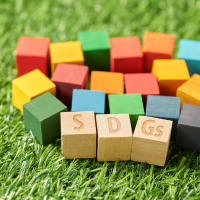
In short: Belarus ranks high in the global SDG Index, but there is a major “BUT.” The human rights situation — especially under Goal 16 — continues to deteriorate, and alternative civil society reports highlight this gap.
The Belarusian Helsinki Committee (BHC) has prepared an alternative report on Belarus's implementation of Sustainable Development Goal (SDG) 16 — Peace, Justice and Strong Institutions. The BHC has also contributed to a coalition report on all SDGs, developed by representatives of Belarusian civil society.
These documents are timed to coincide with Belarus’s presentation of its Voluntary National Review (VNR) at the UN High-Level Political Forum in July 2025. The country previously submitted a VNR in 2022.
According to the Sustainable Development Report 2025, Belarus ranked 32nd out of 167 countries in terms of overall SDG achievement. This is a high rating, and the government often refers to it in public communications (e.g., the speech by Deputy Chair of the Council of the Republic S. Khomenko, “Belarus on the Path Towards Achieving the SDGs” (in ru)).
However, it is important to understand which indicators contribute to such a ranking, and to look beyond the “overall average” to the problematic areas. For instance, the situation under Goal 16 — Peace, Justice and Strong Institutions — continues to worsen overall. Goal 8 — Decent Work and Economic Growth — is assessed as stagnating, and specific components (e.g., effective guarantees of fundamental labor rights, fatal occupational injuries) are worsening.
Otherwise, it may seem as though different UN mechanisms (e.g., SDG reporting and Report of the United Nations High Commissioner for Human Rights) are not just unaligned, but exist in entirely separate realities.
Alternative reports developed by civil society aim to highlight the need for a continuous link between the SDGs and state obligations in the area of human rights. They provide an independent assessment of progress, identify problems, and help restore the original human-centered purpose of the 2030 Agenda.




